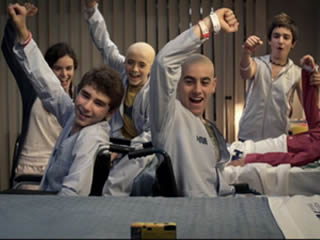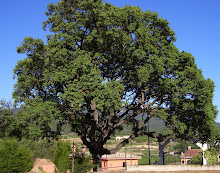The series, created by writer Albert Espinosa [whose English speaking website is here] and directed by Pau Freixas, is inspired in the daily life of a group of children in a children's hospital struggling to cope with the various diseases they suffer. The name of the series is taken from the red plastic bracelets they all wear as a type of patient's ID.
Last season, the series inspired the phenomenon "red bracelets": a legion of faithful followers, most of them teenagers, who made their parents watch, too. These youthful fans, however, did not have enough with watching TV, but moved their passion to the Internet: there sprung up a Facebook group dedicated to the series, and a blog that extends the contents of each chapter immediately after release.
Last season, the series inspired the phenomenon "red bracelets": a legion of faithful followers, most of them teenagers, who made their parents watch, too. These youthful fans, however, did not have enough with watching TV, but moved their passion to the Internet: there sprung up a Facebook group dedicated to the series, and a blog that extends the contents of each chapter immediately after release.
TV3 is already working on the second season of the series, after the success of the first 13 episodes of the first season.
On Oct. 28, the Catalan daily El Punt Avui added the following:






